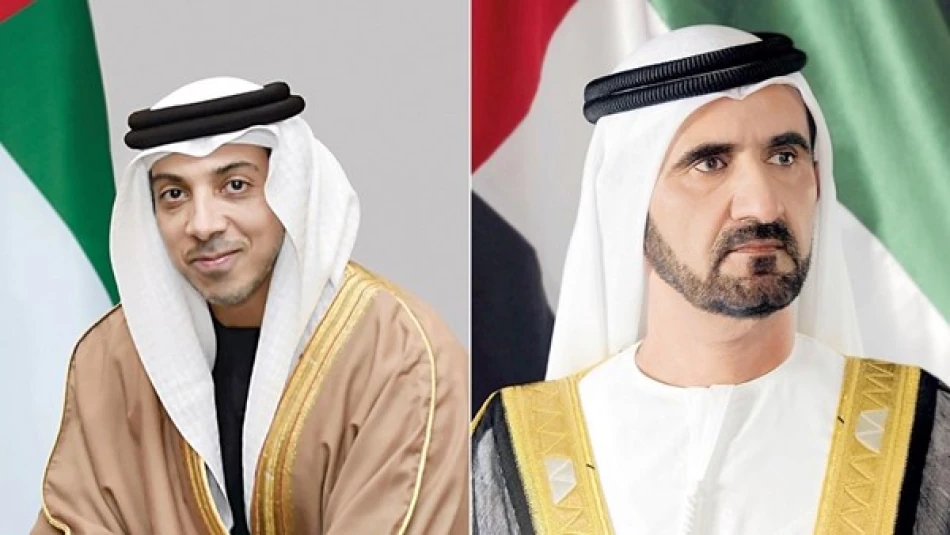
UAE Leaders Offer Condolences to Cuban Prime Minister
UAE Leadership Extends Condolences to Cuba Following Deputy PM's Death
The United Arab Emirates has demonstrated its commitment to maintaining diplomatic relationships across ideological divides, with top officials sending condolences to Cuba following the death of Deputy Prime Minister Ricardo Cabrisas Ruiz. The gesture underscores the UAE's pragmatic foreign policy approach that prioritizes economic partnerships over political differences.
High-Level Diplomatic Outreach
Sheikh Mohammed bin Rashid Al Maktoum, Vice President and Prime Minister of the UAE and Ruler of Dubai, along with Sheikh Mansour bin Zayed Al Nahyan, Deputy Prime Minister and Presidential Court Chairman, sent condolence messages to Cuban Prime Minister Manuel Marrero Cruz following Cabrisas Ruiz's passing.
The coordinated response from two of the UAE's most senior officials signals the importance the Emirates places on its relationship with the Caribbean nation, despite their vastly different economic systems and geopolitical alignments.
Strategic Implications for UAE-Cuba Relations
Economic Pragmatism Over Ideology
This diplomatic gesture reflects the UAE's broader strategy of maintaining relationships with nations regardless of their political systems. While Cuba operates under a socialist framework and the UAE champions free-market capitalism, both countries have found common ground in areas such as healthcare cooperation and cultural exchange.
The UAE's approach mirrors its successful engagement with other ideologically different nations, including China and Russia, where economic opportunities have transcended political differences. This pragmatic diplomacy has helped Dubai and Abu Dhabi become global business hubs that welcome investment and trade from all corners of the world.
Regional Leadership Role
By extending condolences at such a high level, the UAE reinforces its position as a moderate voice in Middle Eastern politics. This contrasts sharply with other regional powers that often let ideological considerations drive their foreign policy decisions.
The move also demonstrates the UAE's soft power strategy, using diplomatic courtesy and cultural sensitivity to build goodwill that can translate into future economic opportunities. This approach has proven successful in Africa, Asia, and Latin America, where Emirati investments and partnerships have flourished.
Broader Context of South-South Cooperation
The UAE-Cuba relationship represents part of a larger trend of South-South cooperation, where developing nations build partnerships independent of traditional Western frameworks. Both countries have invested in diversifying their economies – the UAE moving beyond oil dependence while Cuba seeks to modernize its economy within its socialist framework.
For international observers, this diplomatic exchange highlights how smaller nations can maintain independence in their foreign policy choices, building relationships based on mutual respect rather than pressure from larger powers. As global politics becomes increasingly multipolar, such pragmatic approaches to diplomacy may become the norm rather than the exception.
Most Viewed News

 Layla Al Mansoori
Layla Al Mansoori






